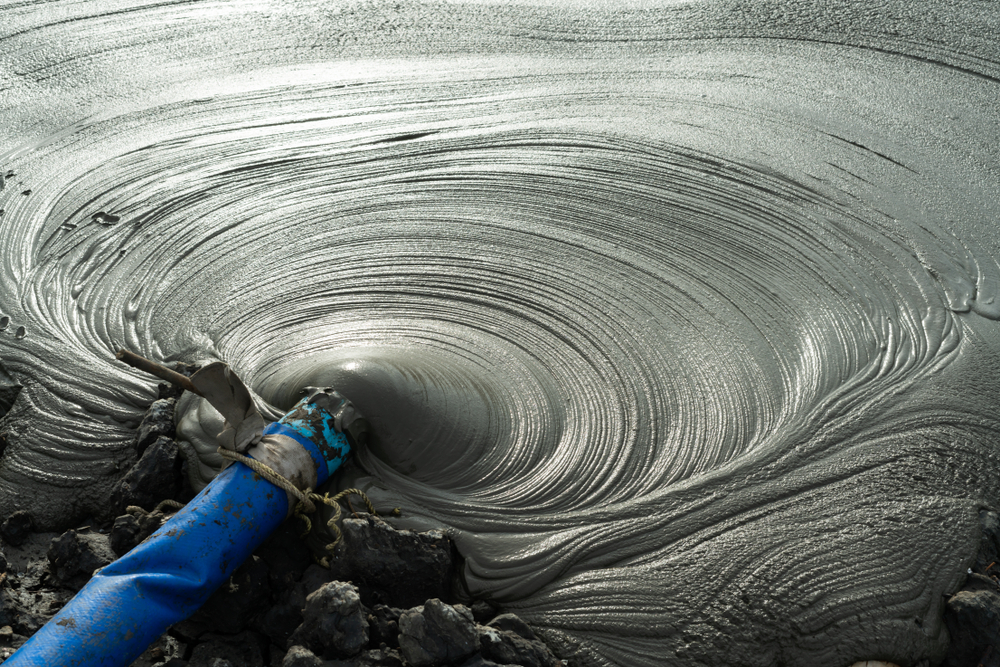NF EN ISO 13503-10 Thermal Stability of Drilling Fluids Testing
The NF EN ISO 13503-10 standard is a critical tool for ensuring the performance and reliability of drilling fluids in the oil & gas sector. This testing method evaluates the thermal stability of drilling fluids, which is essential for maintaining operational efficiency during drilling operations.
Thermal stability refers to the ability of drilling fluids to maintain their properties under high temperatures encountered deep within the earth's crust. Poor thermal stability can lead to fluid degradation, increased viscosity, and reduced lubrication performance, all of which can compromise drilling operations and increase the risk of equipment failure or accidents.
The testing procedure outlined in NF EN ISO 13503-10 involves heating a sample of drilling fluid according to specified temperature and time parameters. The primary purpose is to determine how well the fluid retains its viscosity, density, filtration properties, and other critical characteristics after exposure to elevated temperatures.
This test is particularly important for ensuring that the drilling fluids used in deep drilling operations meet stringent performance standards. Deep drilling often requires drilling fluids with superior thermal stability to withstand the high temperatures found at great depths. The results of this testing can help engineers select the most appropriate fluid types and additives, optimizing both operational efficiency and safety.
The standard is widely recognized for its accuracy and reliability in evaluating the thermal stability of drilling fluids. Compliance with NF EN ISO 13503-10 ensures that the drilling fluids used meet international quality standards, enhancing confidence in their performance under challenging conditions.
- Accuracy: Ensures precise evaluation of fluid properties.
- Consistency: Provides consistent results across different laboratories.
- International Recognition: Accepted globally for its reliability and accuracy.
- Compliance: Helps in meeting regulatory requirements for drilling operations.
The testing process involves rigorous preparation of the fluid sample, which is then subjected to controlled heating conditions. The apparatus used typically includes a heated chamber capable of maintaining precise temperature control within narrow tolerances. After exposure to heat, the sample's properties are measured and compared against predetermined criteria established by the standard.
Understanding the results of this test is crucial for quality managers and compliance officers in oil & gas companies. It provides critical insights into the suitability of drilling fluids for specific operations, helping to prevent costly delays and accidents. For R&D engineers, these tests offer valuable data that can inform product development and process improvements.
Testing according to NF EN ISO 13503-10 is also essential in procurement processes. By ensuring that the fluids meet stringent standards, companies can select suppliers who provide reliable products, reducing the risk of substandard materials being used in critical operations.
Industry Applications
The NF EN ISO 13503-10 standard finds extensive application across various segments of the oil & gas industry. It is particularly relevant to exploration and production companies, service providers, and equipment manufacturers involved in deep drilling operations.
In exploration activities, understanding the thermal stability of drilling fluids is crucial for selecting the right fluid types that can withstand extreme temperatures. This knowledge helps in minimizing risks associated with fluid degradation and ensures optimal performance during critical phases of the drilling process.
For production companies, compliance with this standard ensures consistent quality across different operations, contributing to safer and more efficient drilling processes. Service providers benefit from using fluids that meet these high standards, which enhances their reputation for delivering reliable services.
Equipment manufacturers also play a vital role in ensuring the thermal stability of fluid additives they supply. By adhering to NF EN ISO 13503-10, they can guarantee that their products perform consistently under challenging conditions, thereby supporting the overall reliability of drilling operations.
Eurolab Advantages
At Eurolab, we offer comprehensive testing services for NF EN ISO 13503-10 compliance with a focus on accuracy, precision, and consistency. Our state-of-the-art facilities are equipped with the latest technology to ensure that our tests meet international standards.
We employ highly skilled professionals who have extensive experience in oil & gas testing, ensuring that each sample is handled with care and expertise. Our commitment to quality is reflected in the reliability of our results, which can be trusted by all stakeholders involved in drilling operations.
By choosing Eurolab for NF EN ISO 13503-10 compliance testing, you gain access to a network of industry experts who can provide valuable insights and recommendations based on their deep understanding of the sector. Our services are tailored to meet your specific needs, ensuring that you receive results that are both accurate and relevant.





